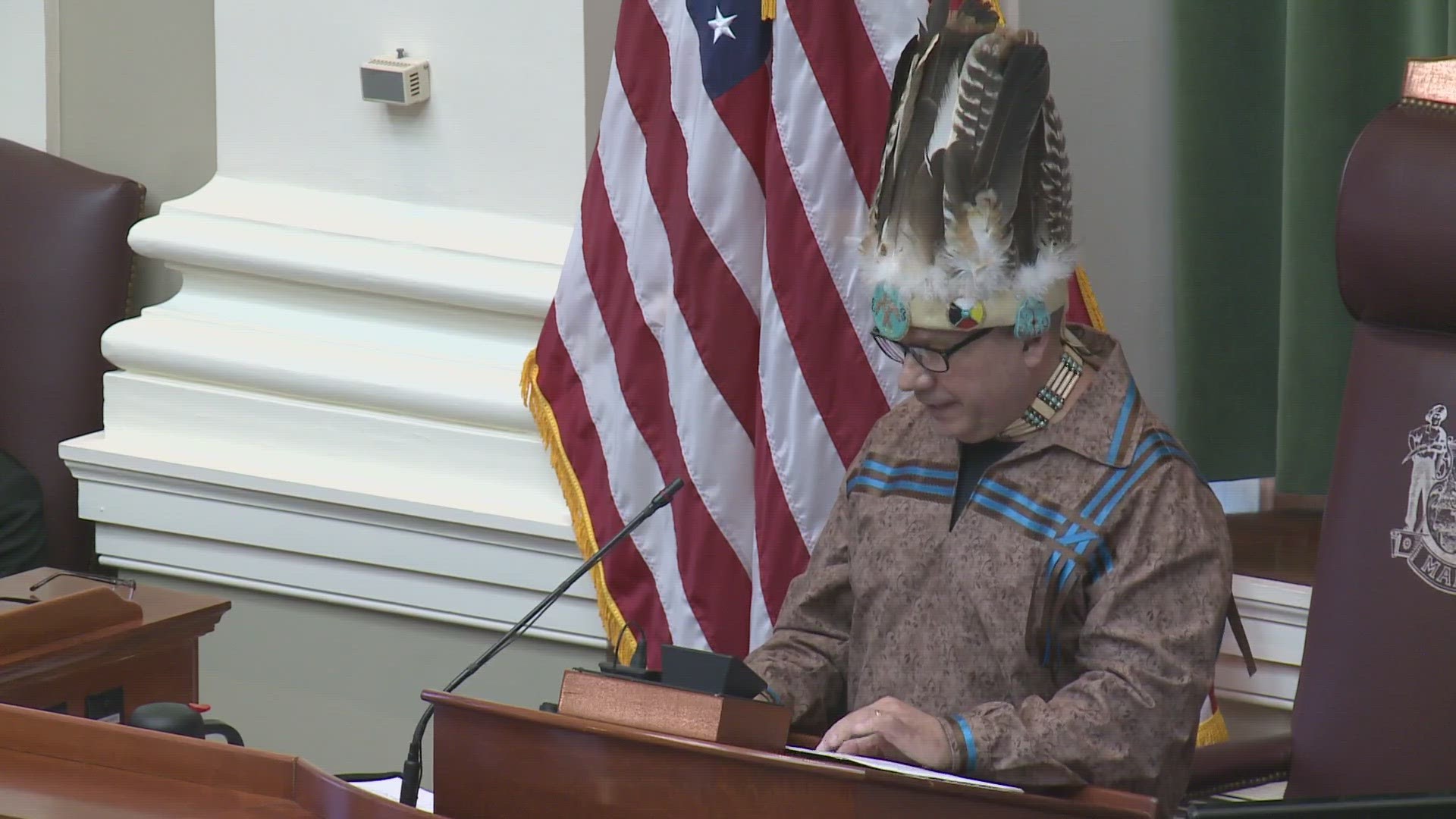AUGUSTA, Maine — The entire Maine State Legislature gave repeated standing ovations as tribal chiefs asked lawmakers to grant the tribes more control over their future.
It was a warm welcome the predecessors of those chiefs likely did not receive 42 years ago.
In 1980, President Jimmy Carter signed into law the Maine Indian Land Claims Settlement. The law settled the tribes’ legal claim to as much as two-thirds of the land in the state, based on court opinions that treaties and agreements made centuries before had been violated, and that many current land titles could be ruled invalid as a result.
The settlement awarded the tribes more than $80 million in damages and the right to buy more land to help provide economic development. It also required the tribes to come under state law, similar to a town, instead of being governed by federal laws like the other tribes in the country.
That state oversight is what the tribes now want to change.
"The Land Claims Act of 1980 was meant to settle land claims," Chief William Nicholas of the Passamaquoddy tribe at Indian Township said. "It was never meant to hinder development and dissolve our sovereign rights to make decisions on our own lands."
In an interview with 207, Chiefs Clarissa Sabbatis of the Houlton Band of Maliseet Indians and Chief Kirk Francis of the Penobscot Indian Nation said regaining tribal sovereignty is the key to preserving their culture and ensuring stronger economic development.
They said that because of the current law, the Maine tribes are not able to access many federal programs that have helped other tribes to develop.
"They’ve made these laws over the years to help our governments thrive and we haven’t had access to those," Chief Sabbatis said.
Both chiefs stressed the need for economic development to help the tribes create jobs and more income. Francis said the current law often makes that difficult and cited the example of a proposed wind farm.
"We were trying to permit a wind farm—this was 20 years ago—the state insisted on doing the permitting on our land, [but] we insisted on doing the permitting. The investor said 'I’m not putting 200 million into this project if I have to deal with two processes.'"
In some past debates, the focus on federal regulations has concerned casino development. The tribes in Maine have tried multiple times to get a casino in the state, but those efforts have always been rejected.
The chiefs, however, said casinos are not their prime focus this time.
"I would sign my rights away to gaming forever to get the rest of this package," Francis said. "I think it's about restoring dignity and self-worth for our people."
"To be able to be respected and valued as an important part of Maine and its history would be amazing," Chief Sabbatis said.
“It [sovereignty] would mean everything," Chief Francis added.
The Legislature passed a bill last year to restore sovereignty to the tribes. It was opposed by Gov. Janet Mills, but never made it to her desk. Instead, another bill proposed by Mills did pass, which will allow the tribes to begin online sports gambling.
Mills did not attend the State of the Tribes speeches, citing a prior commitment. The chiefs said she invited them to meet beforehand, but that timing didn’t work either.
Both the governor’s office and the chiefs have said they want to meet and talk about prospects for passing a sovereignty bill this year.

